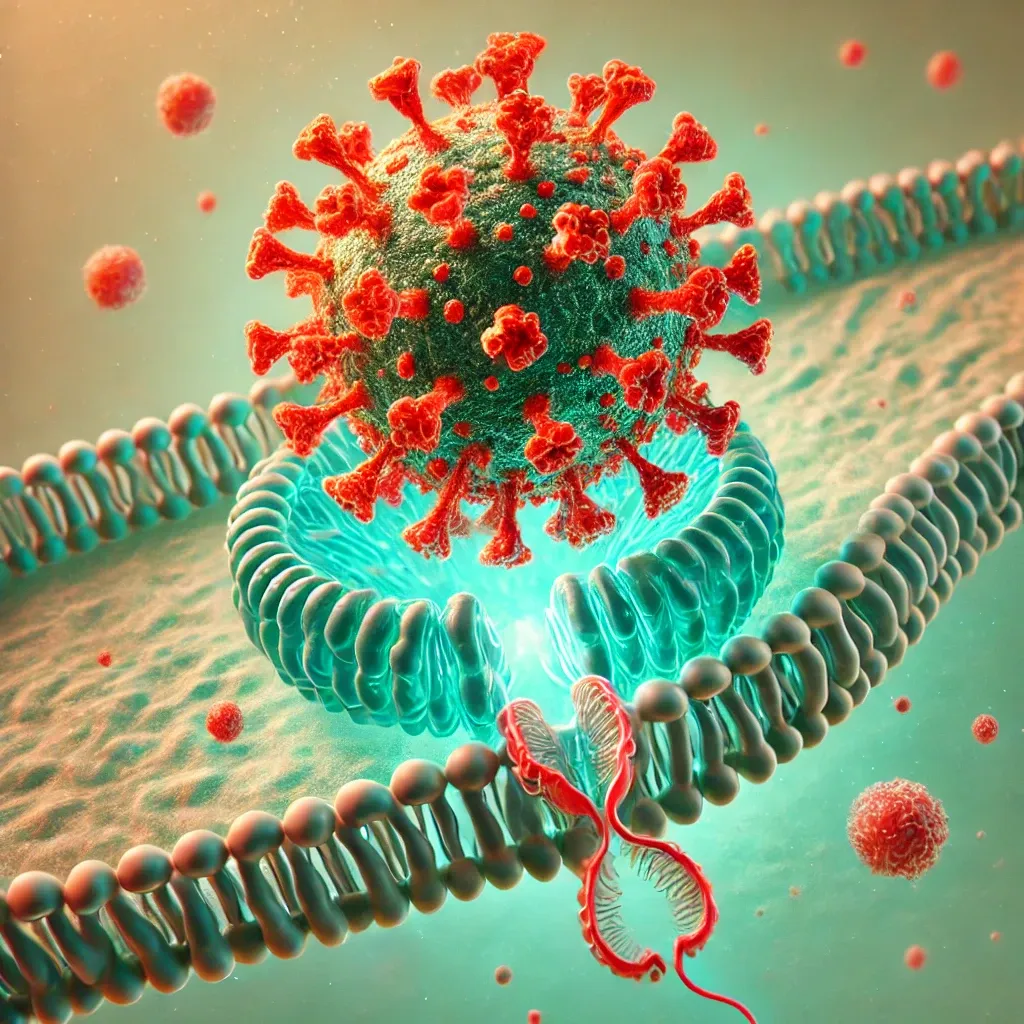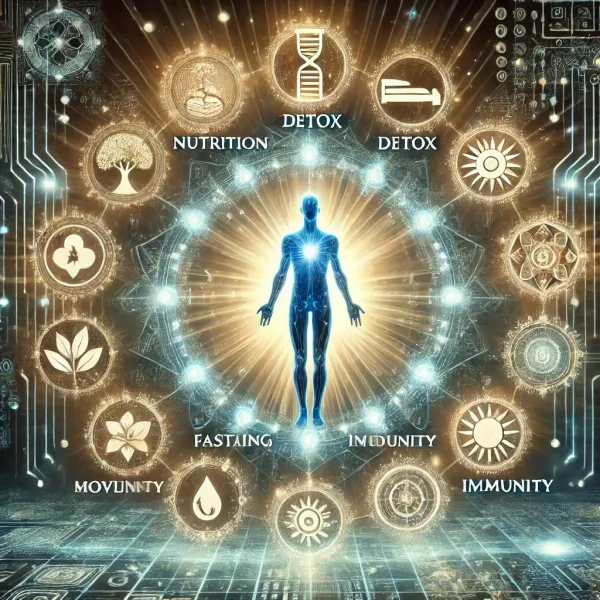The Surprising Role of Nicotine in Treating Long-Haul COVID-19 Symptoms

Nicotine has long been associated with smoking and its health risks, but research suggests that pure nicotine could have a surprising role in combating the SARS-CoV-2 virus, particularly for those suffering from long-haul COVID-19 symptoms. This focus is on nicotine in its purest form, not on smoking, which is known to be harmful due to the added chemicals and toxins in cigarettes.
While nicotine is often blamed for addiction, according to one Harvard study it is the additional chemicals, such as pyrazines, that may be the true culprits! This challenges the conventional narrative that nicotine itself is solely responsible for the powerful addiction seen in smokers. This reinforces the need for a distinction between pure nicotine and smoking cigaretters, highlighting the potential therapeutic applications of nicotine when isolated from harmful additives.
A pivotal study conducted by researchers at the Harvard School of Public Health sheds light on the true drivers of cigarette addiction. The study concluded that "Cigarette additives and ingredients with chemosensory effects that promote addiction by acting synergistically with nicotine, increasing product appeal, easing smoking initiation, discouraging cessation or promoting relapse should be regulated by the US Food and Drug Administration. Current models of tobacco abuse liability could be revised to include more explicit roles with regard to non-nicotine constituents that enhance abuse potential."
What Does the Science Say About Nicotine?
Nicotine's mechanism of action
Researchers have found that nicotine can attach to the same spots on our cells that the virus uses to get inside, called ACE2 receptors. By doing this, nicotine might block the virus from entering the cells and spreading. This study The Journal of Biological Chemistry looked at how nicotine might help stop the SARS-CoV-2 virus, which causes COVID-19, from getting into our cells.
The study also showed that nicotine might help calm down the body’s immune response, which can sometimes go overboard during infections like COVID-19. By reducing this overreaction, nicotine could potentially lower the damage caused by inflammation, especially in people who have long-term symptoms after COVID-19, also known as long-haul COVID.
In short, this study suggests that nicotine might help slow down the virus and reduce inflammation in the body. However, this is still early research, and more studies are needed to confirm how effective nicotine might be.
Another study focused on how nicotine can influence the immune system and help reduce inflammation in the body. According to Bioelectronic Medicine researchers discovered that nicotine can activate something called the "cholinergic anti-inflammatory pathway." This pathway acts like a switch in the body that can turn down inflammation when it's getting out of control.
The study showed that when nicotine turns on this pathway, it helps calm down the body's immune response and reduces harmful inflammation, which is often linked to long-lasting symptoms from illnesses like COVID-19. This means nicotine might help people who are suffering from ongoing inflammation or immune system problems after getting sick, like with long-haul COVID.
In simple terms, nicotine helps the body control inflammation and could potentially help people feel better after they’ve had serious illnesses like COVID-19 by calming their immune system.
How Can Nicotine Help with Long COVID
This same study published in Frontiers in Physiology and appearing on the NIH website, examined nicotine's effects on immune modulation and inflammation, reporting significant improvements in participants suffering from viral myocarditis and long-haul COVID-19. Participants presented with a range of debilitating symptoms, including chest pain, palpitations, shortness of breath, fatigue, brain fog, dizziness, muscle weakness, joint pain, persistent inflammation, sleep disturbances, anxiety, depression, and exercise intolerance. Additionally, many reported the loss of taste and smell—common lingering symptoms of COVID-19. Following treatment with nicotine, participants experienced a marked reduction in symptoms. Chest pain and palpitations decreased, breathing became easier, fatigue lessened, cognitive function improved, and muscle strength and joint mobility were restored. Remarkably, many participants also regained their sense of taste and smell. These improvements were linked to nicotine’s activation of the cholinergic anti-inflammatory pathway, which helped reduce pro-inflammatory cytokines and restored balance to immune function, offering hope for those suffering from long-term post-viral symptoms.
Reversing Myocarditis from Long COVID
According to studies, targeting the immune response and reducing inflammation is key in mitigating myocarditis and improving heart function. Nicotine’s ability to modulate inflammation may play a role in this recovery process. In fact, therapeutic strategies that focus on calming the immune response and repairing heart tissue have shown promise in reversing myocarditis in viral contexts, which may translate to long COVID as well .
Another critical area of concern for long-haul sufferers is myocarditis, a type of heart inflammation that can lead to serious complications, and it's commonly seen in cases of viral infections like COVID-19. Research published in Clinical Science, on viral myocarditis induced by Coxsackie virus B3 offers a potential insight into how this condition could be reversed in COVID-19 patients.
Nicotine has been shown to activate the cholinergic anti-inflammatory pathway, which can reduce the inflammatory response associated with myocarditis. The study demonstrates that nicotine, through its interaction with nicotinic acetylcholine receptors, plays a role in regulating immune responses and can help reduce heart inflammation, ultimately improving cardiac function. This suggests that nicotine may have therapeutic potential in reversing myocarditis, particularly in cases linked to viral infections like COVID-19. In fact, therapeutic strategies that focus on calming the immune response and repairing heart tissue have shown promise in reversing myocarditis in viral contexts, which may translate to long-haul COVID as well
Could Nicotine Help Long-Haulers Recover?
While research is still in its early stages, the implications of these findings could offer new hope to those dealing with long-haul COVID symptoms. The chronic inflammation and ongoing symptoms have left many patients searching for alternative treatments. Pure nicotine may offer a potential solution by addressing the underlying inflammation that contributes to these lingering issues.
A recent review published in Frontiers in Physiology examined nicotine's effects on immune modulation and inflammation, reporting significant improvements in participants suffering from viral myocarditis and long-haul COVID-19. Participants presented with a range of debilitating symptoms, including chest pain, palpitations, shortness of breath, fatigue, brain fog, dizziness, muscle weakness, joint pain, persistent inflammation, sleep disturbances, anxiety, depression, and exercise intolerance. Additionally, many reported the loss of taste and smell—common lingering symptoms of COVID-19. Following treatment with nicotine, participants experienced a marked reduction in symptoms. Chest pain and palpitations decreased, breathing became easier, fatigue lessened, cognitive function improved, and muscle strength and joint mobility were restored. Remarkably, many participants also regained their sense of taste and smell. These improvements were linked to nicotine’s activation of the cholinergic anti-inflammatory pathway, which helped reduce pro-inflammatory cytokines and restored balance to immune function, offering hope for those suffering from long-term post-viral symptoms.
As more research develops, it becomes increasingly clear that nicotine in its pure form could serve as a powerful therapeutic tool for long-haul COVID sufferers. While nicotine has often been associated with addiction due to its role in cigarettes, it’s essential to consider the broader context: the chemicals in cigarettes, not nicotine alone, are responsible for much of the addiction seen in smokers. When separated from these additives, nicotine’s potential healing properties can come into focus.
Pure Nicotine vs. Cigarettes
It's essential to differentiate between pure nicotine and nicotine consumed through smoking. Cigarettes contain over 600 added chemicals, many of which are designed to enhance addiction. One such group of chemicals, pyrazines, is known to significantly drive cigarette addiction. Pure nicotine, on the other hand, can be administered in controlled doses without these harmful additives.
Interestingly, many studies often cite nicotine as addictive, but this data is typically derived from studies on cigarettes, which contain numerous chemicals engineered to increase addiction. To this author's knowledge, no studies have definitively proven that nicotine on its own is as addictive as it is when combined with cigarette additives. In fact, nicotine naturally occurs in certain foods like tomatoes, potatoes, and eggplants, yet people do not develop addictions to these foods.
Conclusion
Nicotine's potential role in treating long-haul COVID may be unexpected, but research shows that it could help regulate inflammation and support recovery. Pure nicotine offers an exciting avenue for further exploration, particularly in helping long-haul COVID sufferers regain their health. As we learn more about the virus and its long-term effects, nicotine could prove to be an important tool in the ongoing effort to manage and overcome this persistent condition.
In health,
Jamie Shahan MSN, CRNA, RN
Empowering Holistic Health
🌐 Connect with me on Social Media:
This article contains affiliate links and I may make a little cash along the way. I'd be stupid not to add them! If I am educating you about making changes then I may as well recommend items for you to try. These suggestions will get you looking in the right direction.



